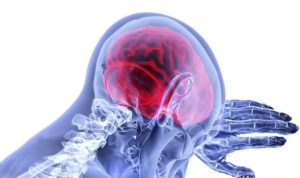Thinking hard or hardly thinking? The difference isn’t just in your head

Intense thinking causes glutamate accumulation in the brain leading to mental fatigue, suggests a new study.
You get up. You get ready. You go to work. You spend a long time sitting in front of a screen concentrating. On the way home you wonder why you are so worn out.
Sound familiar?
Having not gotten up to run a marathon while juggling barbells before breakfast, you’d be forgiven for second guessing your own fitness – how exactly do you get that tired just sitting down all day? But the research suggests that exhaustion after intense concentration is justifiable. It turns out you don’t need to be doing hours of physical labor to tire yourself out.
Researchers at Pitié-Salpêtrière University Hospital (Paris, France) found that when intense mental exertion is performed over several hours, it is accompanied by a build-up of toxic by-products in the prefrontal cortex. This triggers cognitive fatigue and influences behaviors towards low-effort actions. Microchips in computers are capable of processing vast quantities of information hour after hour without showing signs of tiring, so what is limiting our own spongey meat processor?
The researchers used magnetic resonance spectroscopy to monitor the brain over the course of a workday using two groups of people: one group who needed to exert a strong mental effort and another group with less taxing demands. The researchers theorized that the limited capacity of the brain to concentrate was linked to a need to recycle a by-product of neural activity. Like a coal engine, your brain is incredibly effective at getting you from A to B, but it produces a lot of smoke in the process. Only the smoke doesn’t really go anywhere in this theoretical, it just accumulates and slows the train down.
 Cutting through the fog: understanding the causes of mental fatigue
Cutting through the fog: understanding the causes of mental fatigue
This study provides an explanation for the brain fog often experienced by those with chronic medical conditions.
As expected, only the group with the heavier strain displayed behaviors linked with fatigue, including reduced pupil dilation and a bias towards low-effort, short-term options. More importantly, however, this group also registered higher levels of glutamate in the prefrontal cortex, supporting the researchers’ hypothesis that glutamate accumulation was responsible for mental fatigue.
Further activity by the prefrontal cortex comes at a subsequently increased cost, which explains why concentration is more difficult after you’ve been doing so for a long time – similar to soreness in the muscles after a workout. Maybe that explains why Rodin’s The Thinker was so ripped.
Lead author Mathias Pessiglione explained, “Influential theories suggested that fatigue is a sort of illusion cooked up by the brain to make us stop whatever we are doing and turn to a more gratifying activity. But our findings show that cognitive work results in a true functional alteration — accumulation of noxious substances – so fatigue would indeed be a signal that makes us stop working but for a different purpose: to preserve the integrity of brain functioning.”
Unfortunately, there isn’t a way to circumvent this. Until someone smart exhausts themselves coming up with a way to formulate a more energy-efficient Brain 2.0, we are stuck with last epoch’s hardware limitations. That means taking the advice of your local System Admin and try turning it off and on again, demonstrated by evidence that suggests that glutamate is removed from synapses during sleep.
In the meantime, the findings may have interesting benefits for the working person, who is faced with hard neurobiological limits. Smart executives could look towards implementing adjustments to work cycles, which could help to dampen the contemporary burnout epidemic sweeping the globe. In future studies they want to learn why the prefrontal cortex is particularly prone to this problem and look for parallels in other conditions from depression to cancer.
And before you celebrate, this isn’t an excuse to skip leg day.


